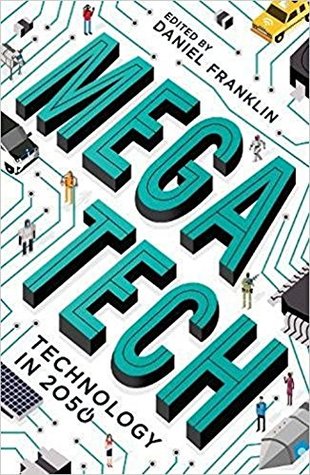
The book of the month is…
What will the world of technology look like in 2050? And how will it affect the way we live? These are the big questions explored in this book, written by Daniel Franklin, a collection of thought-provoking insights which imagine how big developments in technology might shape the future. In this collection, distinguished scientists, industry leaders, star academics and acclaimed science-fiction writers join journalists from The Economist to explore answers to these questions and more.
Technology can never be relied on to solve the problems in the absence of social action; one of the dangers of fetishising technology as an actor in its own right is that it obscures this point. good solutions will rarely, if ever, be implemented through technology alone.
Daniel Franklin brings together today’s most innovative scientists, leaders, thinkers, and writers to imagine how future technology will develop and shape our lives. Nobel Laureate Frank Wilczek expects a rapid acceleration of scientific discovery, and Melinda Gates envisions a smartphone in the hand of every woman. Meanwhile, Benjamin Sutherland warns of military robots, and Leo Mirani sees smart glasses on every person’s face.
The result is a thought-provoking collection of insight and imagination that will inspire us to make the most of future opportunities just as it motivates us to tackle the environmental, economic, and social challenges ahead. Unfortunately, Megatech doesn’t quite deliver the promise in its subtitle, Technology in 2050. Most of the essays included in the book examine current trends rather than looking 30 years ahead. Some don’t venture far at all into the future.
A clear understanding that technology does not have its own agenda but serves the agenda of others, and that it necessarily creates new needs almost as effectively as it meets old ones, will make this change easier to navigate responsibly. But it will never bring the changes to a halt.

Prediction is very difficult, especially about the future.
